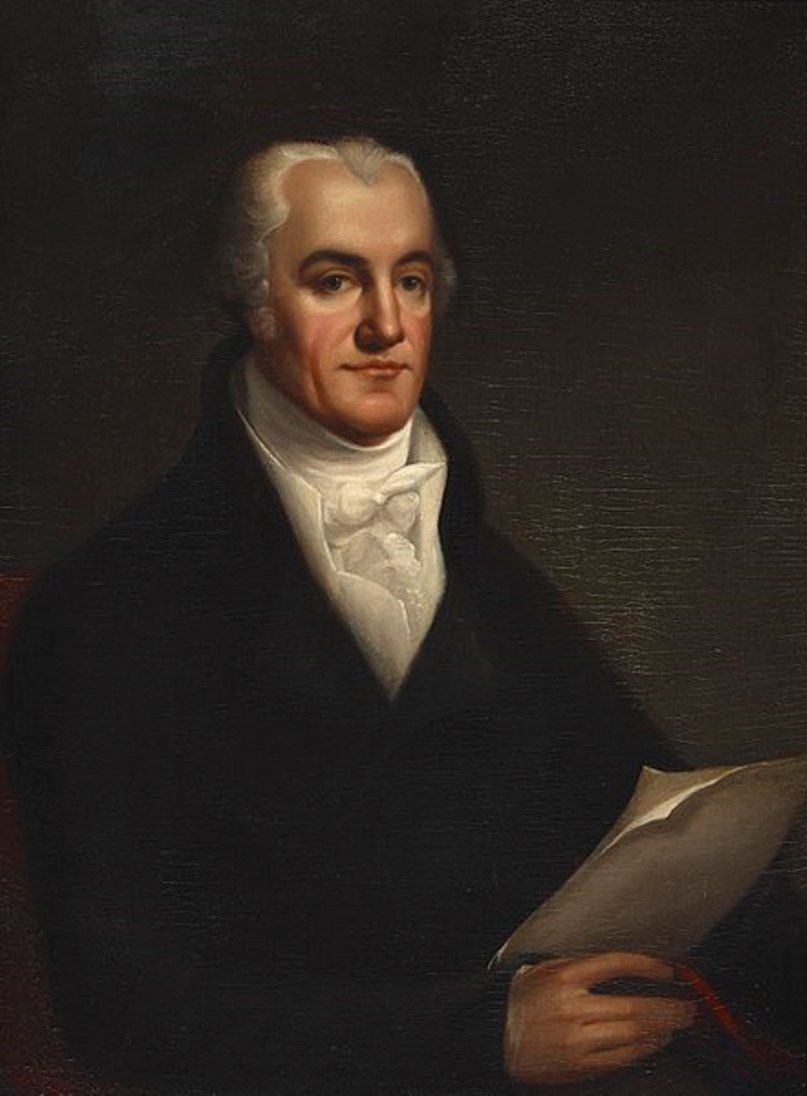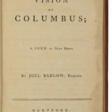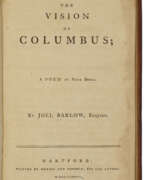Joel Barlow (1754 - 1812)

Joel Barlow
Joel Barlow was an American statesman, diplomat, French politician and poet.
A graduate of Yale University, he briefly served as a chaplain in the Revolutionary Army. In 1784, Barlow founded the American Mercury, a weekly newspaper in Hartford, Connecticut, and was admitted to the bar in 1786. Along with John Trumbull and Timothy Dwight, he was a member of the Hartford Witters, a group of young writers.
Joel Barlow's fame was brought to him by his poetic work The Vision of Columbus (1787). It is a dialog between Christopher Columbus and an angel and covers the entire history of America to the end of the American Revolution. The poem was signed by many leading figures of the time, including George Washington and Benjamin Franklin, and was popular on both sides of the Atlantic. The author later reworked the poem into a more cynical epic called Columbiad.
In 1788, Barlow traveled to France as an agent for the Scioto Land Company and persuaded a group of Frenchmen to emigrate to America, who eventually founded the town of Gallipolis, Ohio. In Paris he became a liberal in religion and an advanced republican in politics; he took part in the French Revolution and was granted French citizenship.
In the literary field, Barlow is also known for his work The Hasty Pudding (1796). It is a humorous poem inspired by a longing for New England and cornmeal, containing vivid descriptions of rural scenes.
In 1795-97. Barlow was sent to Algeria on a diplomatic mission and returned to the United States in 1805. In 1811 he was appointed U.S. plenipotentiary to France. Barlow participated in Napoleon's retreat from Russia and died in Poland.
| Date and place of birt: | 24 march 1754, Redding, USA |
|---|---|
| Date and place of death: | 26 december 1812, Żarnowiec, Poland |
| Period of activity: | XVIII, XIX century |
| Specialization: | Diplomat, Poet, Politician, Writer |

